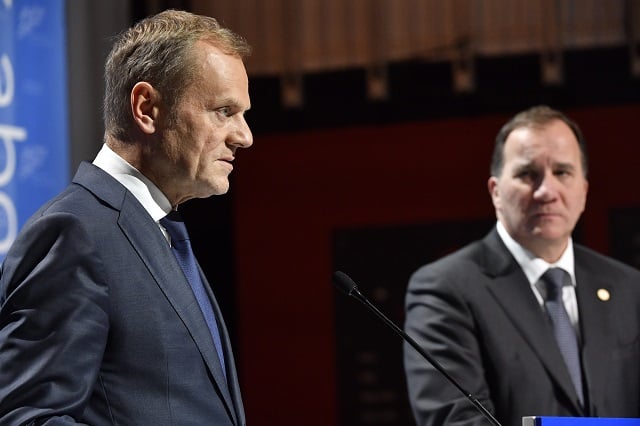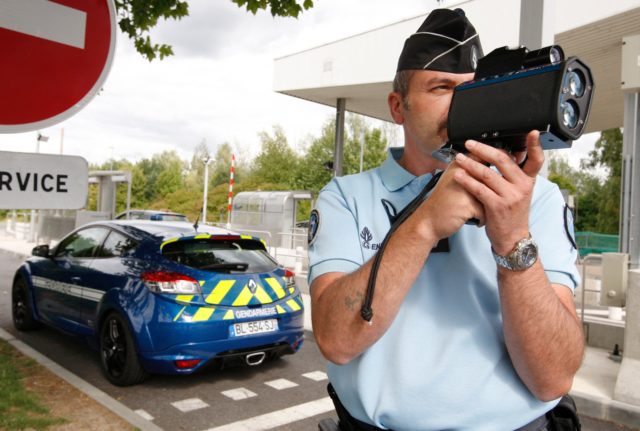Tusk said he had told British Prime Minister Theresa May that without more compromises, EU leaders could not agree to open trade negotiations with Britain when they meet in Brussels on December 14th.
“We need to see more progress from the UK side. While good progress on citizens' rights is being made, we need to see much more progress on Ireland and on the financial settlement,” Tusk told a press conference in in the Swedish city of Gothenburg, where EU leaders were discussing social issues.
READ ALSO: Theresa May tells Swedish media she is close to Brexit financial offer
“In order to avoid any ambiguities about our calendar, I made it very clear to Prime Minister May that this progress needs to happen at the beginning of December at the latest,” added the former Polish premier.
“If there is not sufficient progress by then, I will not be in a position to propose new guidelines on a transition period and the future relationship at the December European Council”.
Tusk said he would hold fresh Brexit talks with May in Brussels on November 24 when EU leaders hold a partnership summit with six former Soviet-bloc countries.
Tusk was scathing when asked about comments by British Brexit negotiator David Davis that Britain had already made compromises and that it was now the European Union's turn to make a move.
“I really appreciate Mr Davis's English sense of humour,” he said.
READ ALSO: EU leaders head to Sweden to seek fairer post-Brexit economy



 Please whitelist us to continue reading.
Please whitelist us to continue reading.